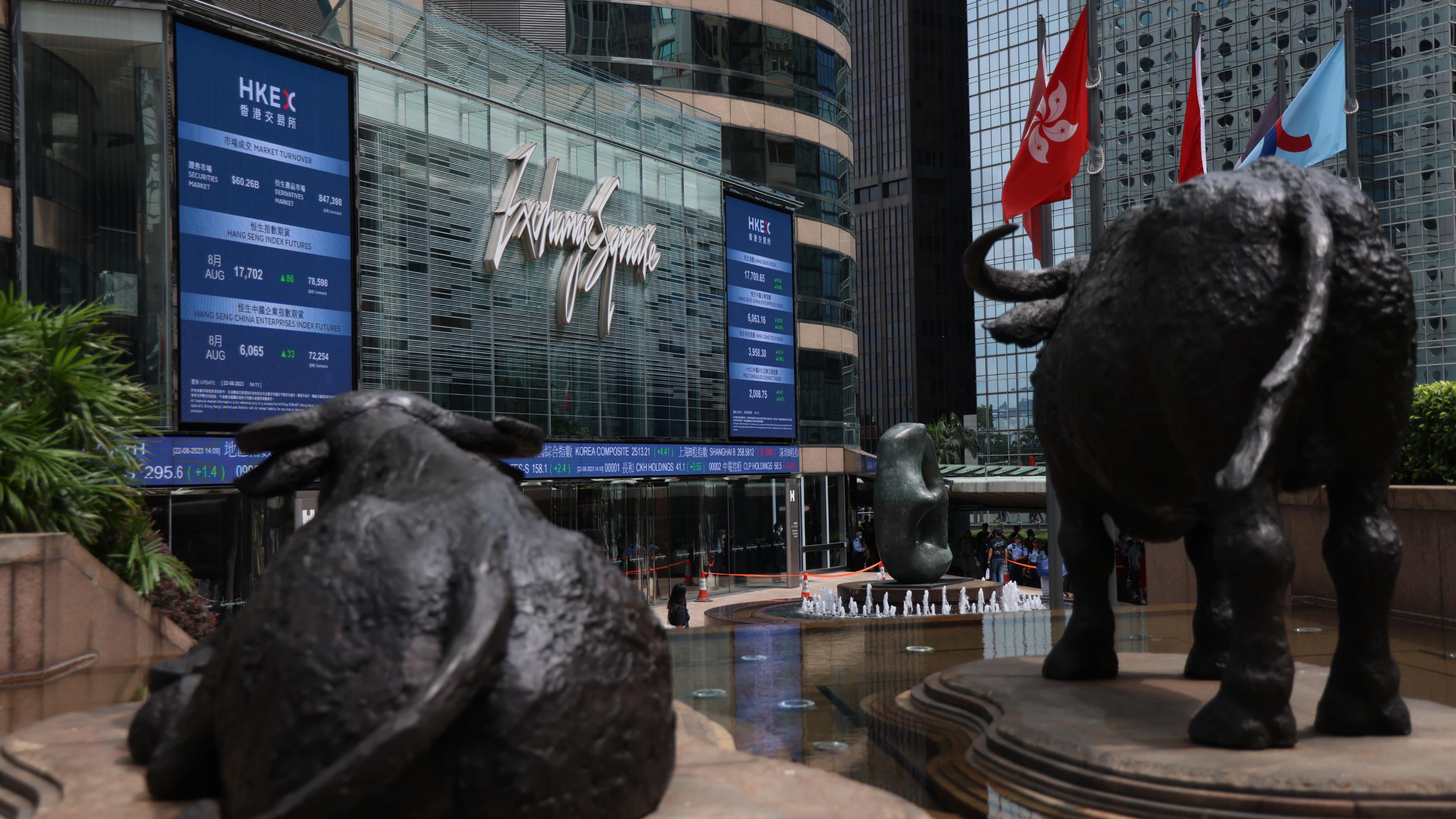 The photo taken on Aug 22, 2023 shows the bronze bull sculptures outside the Hong Kong Stock Exchange building in Central, Hong Kong. (EDMOND TANG / CHINA DAILY)
The photo taken on Aug 22, 2023 shows the bronze bull sculptures outside the Hong Kong Stock Exchange building in Central, Hong Kong. (EDMOND TANG / CHINA DAILY)
Hong Kong could attract more businesses to list and investors to trade in the city, reinforcing its status as an international financial center, if it lowers the stamp duty to reinvigorate the stock market, according to financial industry veterans.
The remarks came as calls for Hong Kong to cut the levy in stock trading are mounting, following the Chinese mainland’s decision to halve the levy to 0.05 percent on Monday, the first change in 15 years.
Hong Kong increased its stamp duty to 0.13 percent of the value of a stock transaction in August 2021, up from 0.1 percent
“As an international financial center, it is of great importance for Hong Kong to maintain its financial vitality,” said Wang Tao, chief China economist at UBS Investment Bank, told China Daily at a seminar held by UBS in Shenzhen on Tuesday. “There is a high possibility that the city (may) cut its stamp duty to stimulate the vitality of its capital market.”
ALSO READ: CEO: HKEX remains committed to LME
Wang said the reduction in stamp duty would be seen as a move to improve the financial infrastructure of Hong Kong. “This means that it may not immediately lead to a rise in the stock market, but could have a long-term positive impact by enhancing initial public offerings and trading in the city,” she said.
Explaining the weak performance of Hong Kong’s stock market, Wang noted that a big part of its “underlying assets” is related to the Chinese mainland’s economy, which is going through an economic slowdown. Meanwhile, the Hong Kong dollar’s peg to the US dollar has kept the city’s interest rate relatively high.
These two factors have led to the sluggishness in the stock market, she said.
ALSO READ: HKEX's profit jumps 31% in H1
Hong Kong increased its stamp duty to 0.13 percent of the value of a stock transaction in August 2021, up from 0.1 percent.
Average daily turnover stood at HK$115.5 billion ($14.7 billion) for the first half of the year, down 16 percent compared with the same period a year earlier.
Robert Lee Wai-wang, a member of the Legislative Council who represents the financial services sector, said the government should consider waiving the stamp duty for six months to a year as a short-term measure to send a positive signal to the market while keeping it as low as possible in the medium and long term.
Cutting the fee will not necessarily result in a reduction in the government’s revenue, as its income could increase as a result of a higher trading volume, he said.
Hong Kong’s benchmark Hang Seng Index extended its rally for a second day on Tuesday, gaining 353.29 points, or 1.95 percent, to finish at 18,484.03.
On the mainland, the Shanghai Composite Index rose 37.25 points, or 1.2 percent, to end at 3,135.89 on Tuesday. The Shenzhen Component Index advanced 221.83 points, or 2.17 percent, to finish at 10,454.98.


